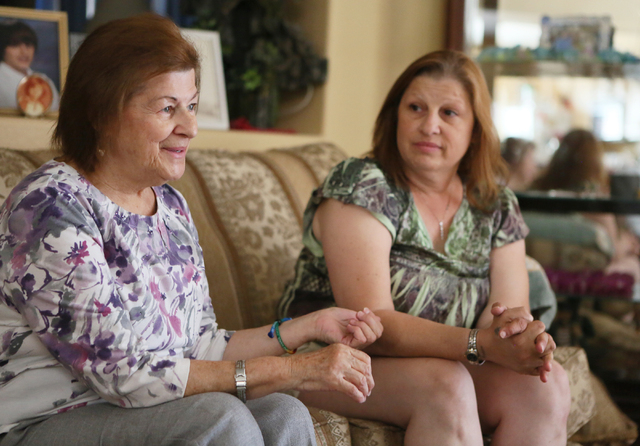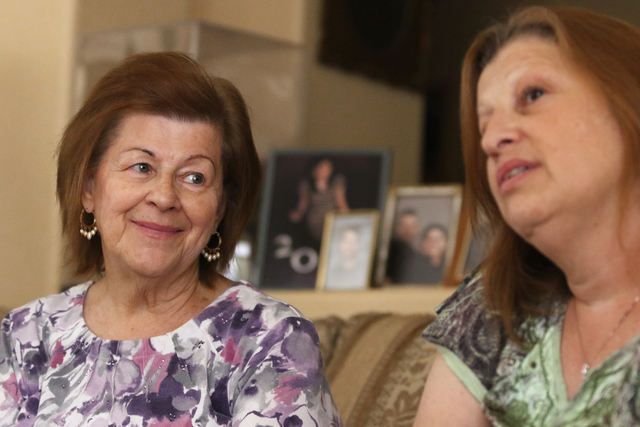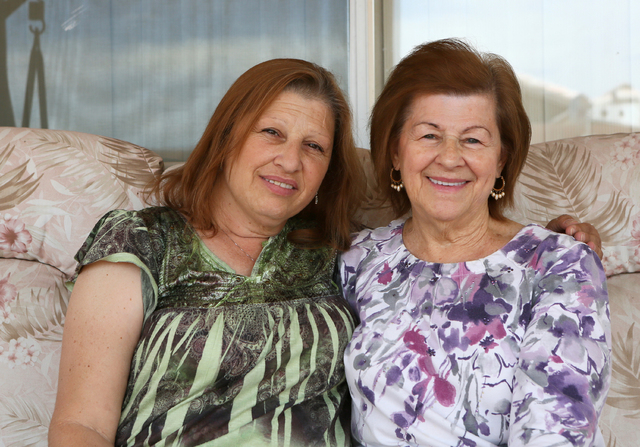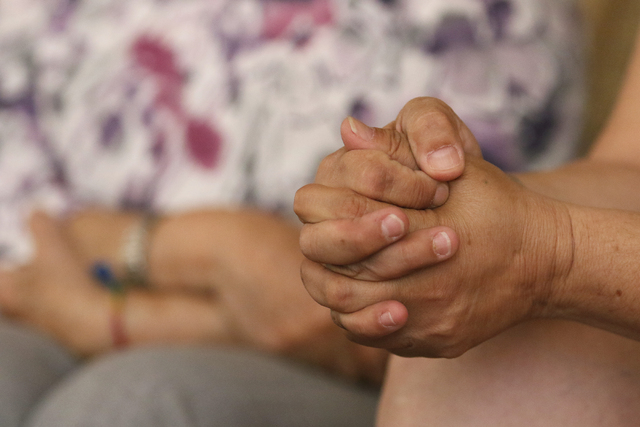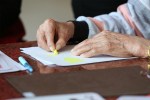History of cancer draws mother, daughter closer
Whether it’s red hair and blue eyes or stubborn personalities and adventurous spirits, daughters inherit a variety of personality traits and features from their mothers.
In some cases, the genetics passed along from one generation to the next can be harmful, as is the case for 73-year-old Laura Lee DeFelix.
Her family tree is littered with instances of breast cancer stemming back to DeFelix’s aunt.
“She found a lump, but she refused to go to the doctor,” she says. “People told her and told her and told her. By the time she finally went, it was too late. Nothing could be done.”
But the story doesn’t end there.
Their genetics might mean having the BRCA gene mutation, which greatly increases the chances for getting breast cancer, but DeFelix has passed something else along to her family she feels is stronger than any cancer — the ability to remain positive.
Years after DeFelix was diagnosed with breast cancer and her own daughter, Ann Marie Brokl, 52, was diagnosed with it, they already had a strong disposition to fight to stay alive.
“Having children made me want to fight,” Brokl says.
This Mother’s Day, as the women celebrate the time they have spent together, they reflect on the blessing to share another day.
Though breast cancer wasn’t something discussed as widely in the 1960s as it is today, DeFelix, 26 at the time, knew the basics about it. She knew, for example, that she should do self-exams.
In the shower one morning, she felt a small lump.
“I thought it was nothing,” she recalls. “I thought, ‘Oh, that’s always been there, right?’ ”
But a small voice inside her told her this was something. To be safe, she made an appointment with her doctor.
After the visit, and even after getting a second opinion, it was confirmed there was breast cancer.
Within a week, she was in surgery where her doctor performed a mastectomy.
“I was in the hospital a week and then they sent me home,” she says. “No chemo, no radiation, nothing like that.”
What made the experience scarier was knowing she had three young children to take care of.
“The whole time I was thinking, ‘Oh my gosh, who is going to take care of my children if I die?” she says. “But I started to pray for healing. And for 50 years, I’ve been cancer-free.”
Brokl was 4 when this was happening and remembers bits and pieces.
“I remember we weren’t allowed in the hospital room, so my grandmother snuck us in,” she says. “I remember doing what we could to take care of her when she got home from the hospital.”
As she got older, her mother started telling her about the importance of self-examinations.
“She always told me about the possibilities I could get it and that we had a family history,” she says.
Years passed and Brokl continued to check herself regularly. One morning in 1994, when she was 32, there was something the size of a pea on her breast.
Though she was living miles from her mother — Brokl was in Texas while her mother was in California — she knew her mother would want her to get checked out.
“They say it’s all about early detection,” Brokl says.
She went to her doctor, who wasn’t able to make a prompt diagnosis. After a few months and feeling she wasn’t in good care with that physician, she sought another opinion.
Under new care, she learned it was not only breast cancer but it was growing fast. She was in surgery within a week.
“It is devastating to learn your daughter is going to go through the same thing you went through,” DeFelix says. “But I had to remain positive.”
Before going into surgery, the doctors weren’t sure whether they would be able to remove the growth or whether they would have to perform a mastectomy.
“I was told if I wake up and feel a small bandage, they removed the growth,” she says. “But if I felt a wrap, I know it was more.”
After surgery, Brokl came to from the anesthesia and felt to see what was there. She discovered her torso was wrapped.
“It was a draining moment,” she says.
Unlike her mother, Brokl went through chemotherapy and radiation.
“I didn’t want to do it because I didn’t want to lose my hair,” she says. “But my mother talked me into it. Plus, I knew I had to survive for my kids.”
Like her mother, Brokl made sure to inform her children about the BRCA gene and the importance of self-examinations.
When her daughter, Brittany, was 16 she had a scare when she felt something on her breast.
“She asked me to check for her,” Brokl says.
They went to the doctor to be safe, but it wasn’t anything.
Originally, her daughter, now 22, didn’t want to get tested for the gene. But now that she is pregnant — expecting a daughter in a few months — she wants to get tested.
“That way she prepares her daughter if need be,” Brokl says.
But the struggle wasn’t over. Brokl and DeFelix, who have lived in Las Vegas for nearly a decade, would have to continue standing by each other as they faced the cancer’s return years later.
For Brokl, the recurrence came in 2007, when the cancer returned to the other breast. At first, the doctors tried lumpectomies, but when the cancer kept returning they decided to remove her other breast.
After nearly 50 years of being cancer-free and vigilant about preventive screens and self-examinations, DeFelix learned her cancer had returned in 2013.
It was the first time she was confronted with the options to have chemotherapy and radiation.
“It scared me,” she says. “But the roles were reversed now.”
It was Brokl’s turn to persuade her mother to have the procedures.
Then the disease returned in Brokl, this time as a 10-centimeter tumor in her chest wall. She had surgery followed by more radiation treatment.
DeFelix was right by her side as she went through each part of treatment.
“It was strange on the other side,” she says. “I would have rather it be me sitting there than her. I guess that’s how my mother felt.”
Both women have continued to take care of each other throughout the entire experience, not only sharing the same oncologist at 21st Century Oncology but also sharing the same hope they can endure.
Considering what they’ve faced, each day is even more precious for Brokl and DeFelix.
This Mother’s Day, as in the past, they will spend the day together.
“No boyfriends or friends,” DeFelix says. “Just us girls. You should spend the whole day with your mother.”
Although they have been able to pass lifesaving advice down through their generations, both Brokl and DeFelix wish they could share their message with more mothers and daughters.
“Breast cancer has no age limits,” DeFelix says. “Screen yourself every time you’re in the shower. If you find a lump, go to the doctor and let him tell you if it’s something to worry about. Early detection is your best chance for survival.”
Contact reporter Michael Lyle at mlyle@reviewjournal.com or 702-387-5201. Follow @mjlyle on Twitter.




